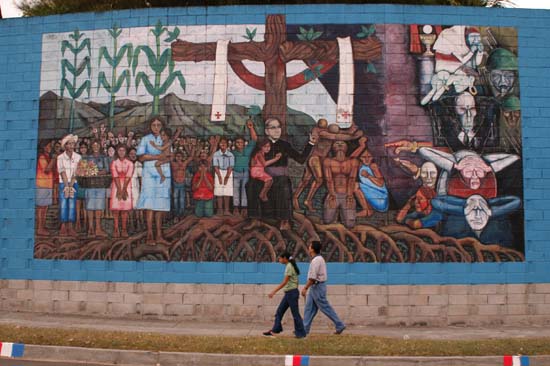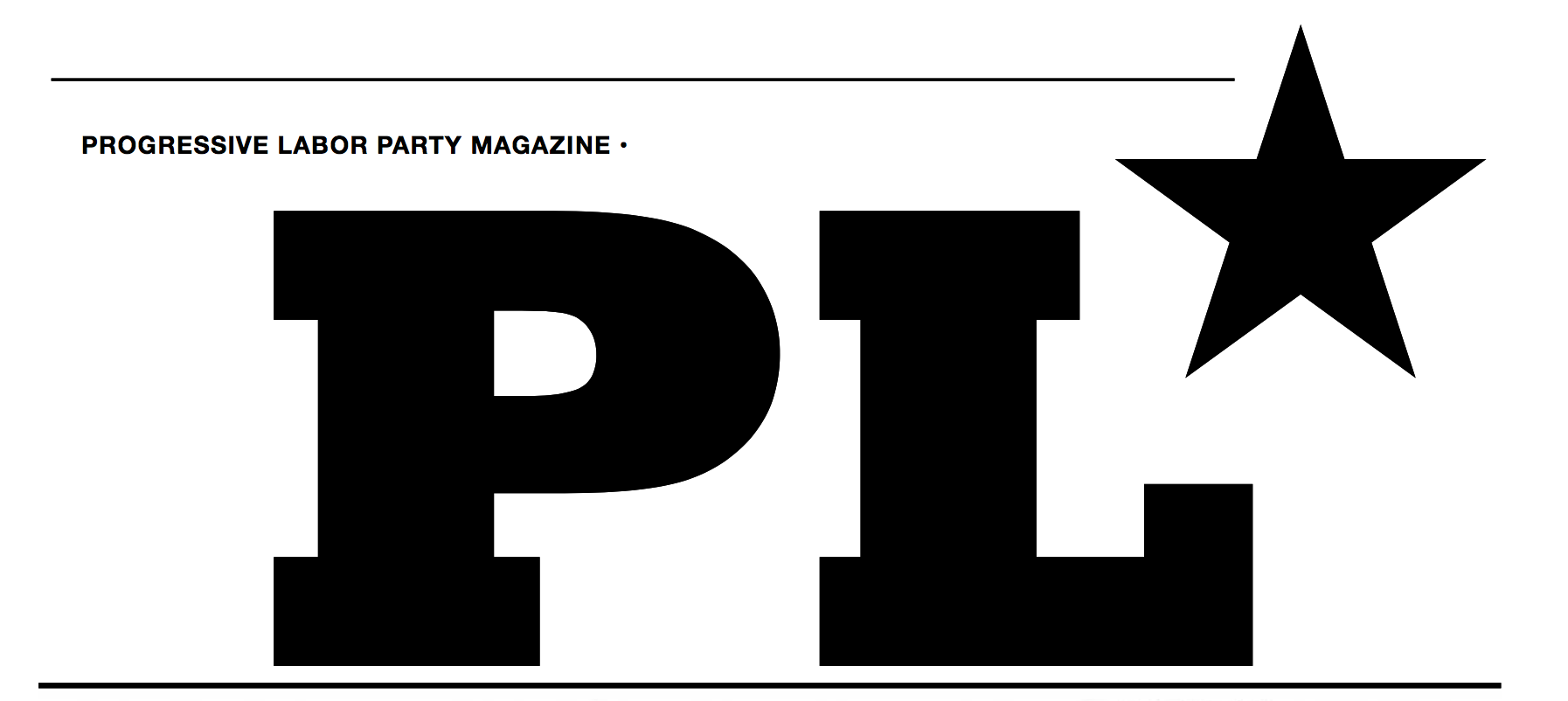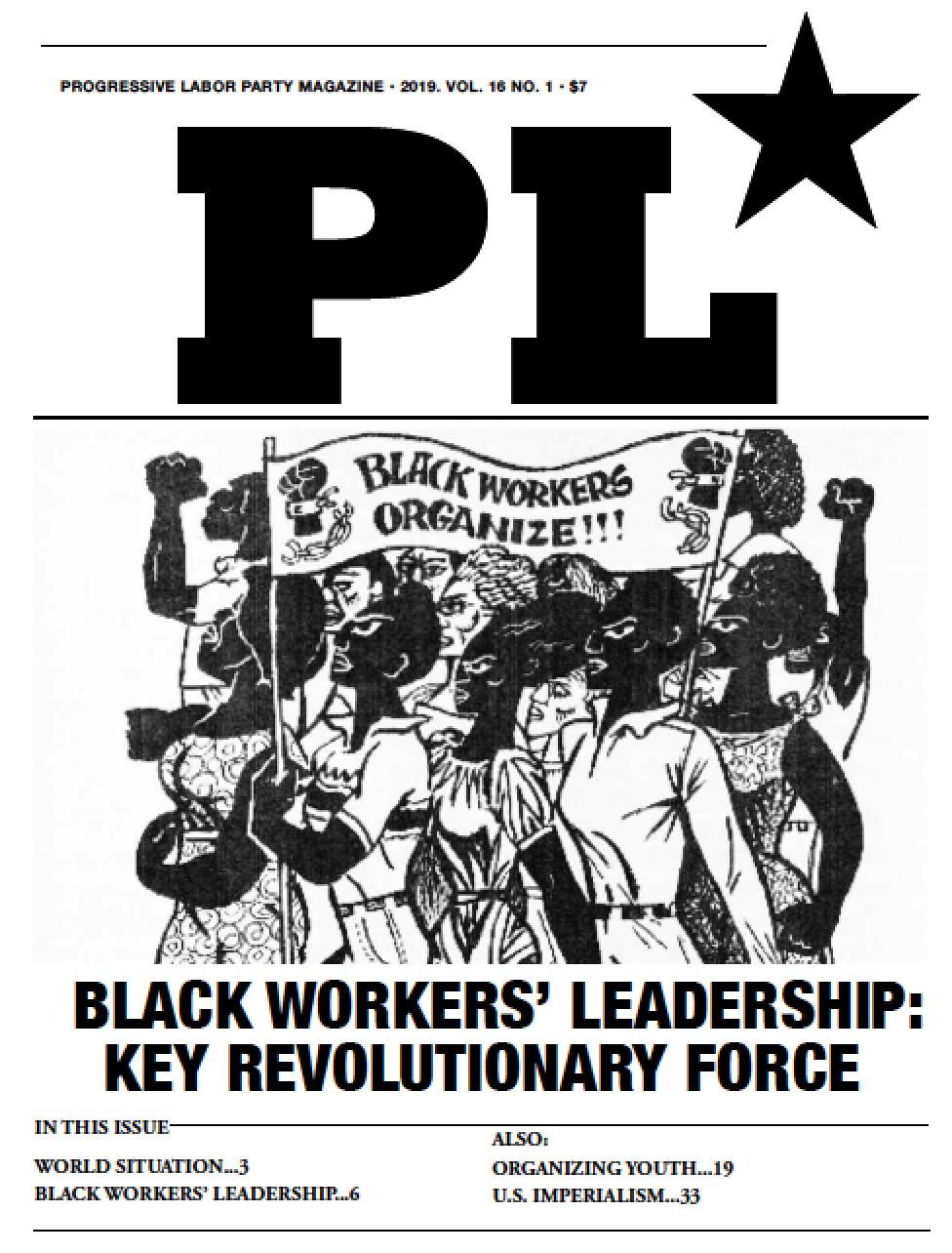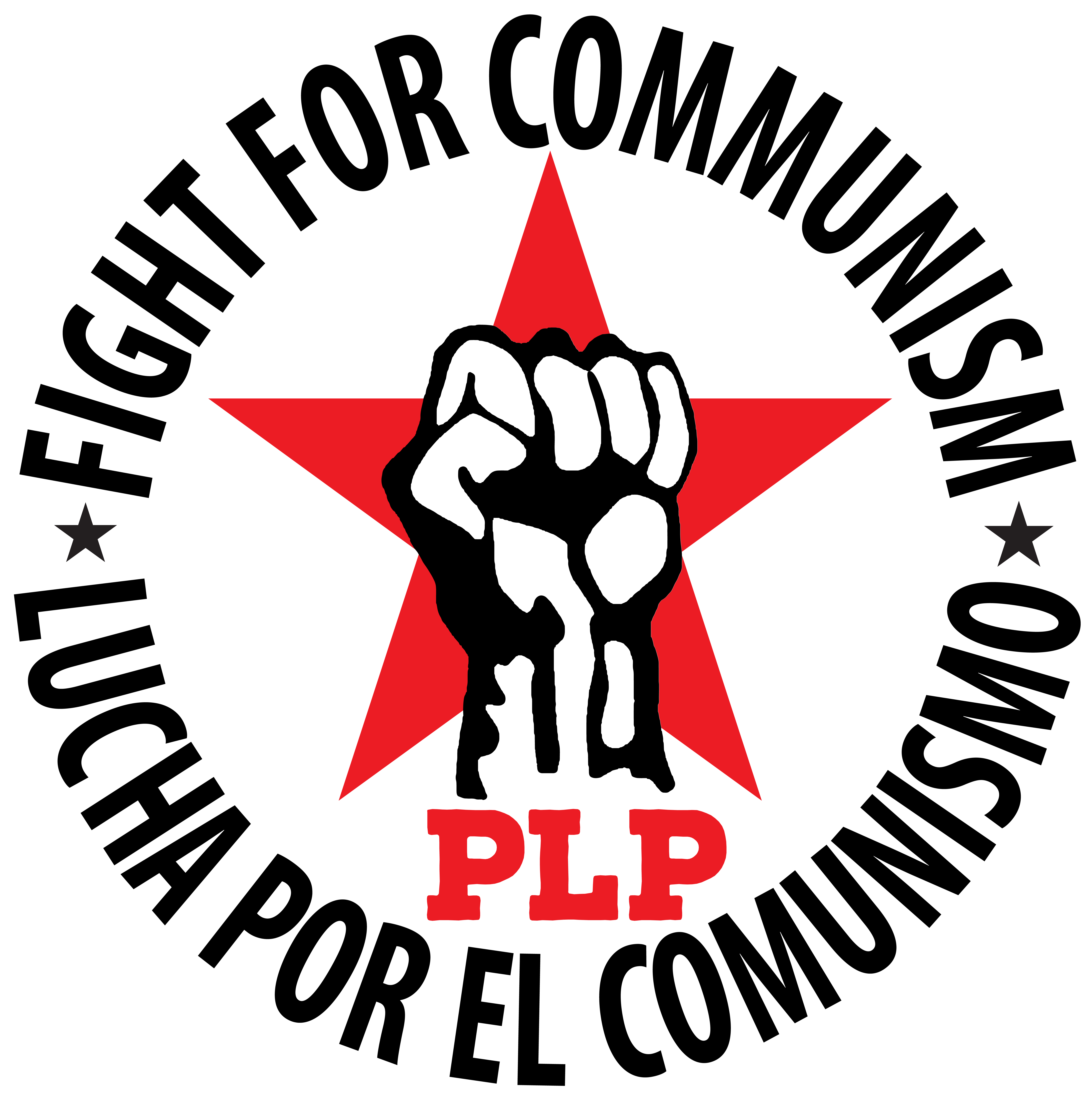A Lifetime of Struggle for the International Working Class
 Saturday, January 2, 2010 at 6:33PM
Saturday, January 2, 2010 at 6:33PM  A mural of Archbishop Romero in El Salvador.El Salvador — This is the story of a comrade, an ex-commander in the FMLN guerilla army, who met the PLP through an old ex-fellow combatant with whom he shared many wartime experiences. His old friend related PLP’s communist ideas to him, how other workers internationally were organizing in the working class with PLP’s line. This gladdened him, but first he began reading CHALLENGE regularly before participating in discussions.
A mural of Archbishop Romero in El Salvador.El Salvador — This is the story of a comrade, an ex-commander in the FMLN guerilla army, who met the PLP through an old ex-fellow combatant with whom he shared many wartime experiences. His old friend related PLP’s communist ideas to him, how other workers internationally were organizing in the working class with PLP’s line. This gladdened him, but first he began reading CHALLENGE regularly before participating in discussions.
He was invited to several PLP club meetings but decided to take some time before actually joining due to all the experiences described below. Currently he attends meetings punctually. Initially he listened carefully to the analysis. His level of participation and responsibility in the armed struggle and his analysis of current events make him very prudent.
He has brought his wife (another ex-combatant) to recent meetings. He has been very honest and correct politically, open about his contradictions — the illusion in elections and the stages theory of es- tablishing communism, using Cuba’s example, and has helped the club to better explain PLP’s politics. His subordinates in the war in El Salvador were very approving of his participation in PLP. They asked him to write his history for CHALLENGE and he agreed, saying that he would try to write as honestly as possible about his life and his understanding of PLP’s politics:
Part I
I was born in the Department of Morazán. We lived in extreme poverty. In my village there were 85 houses, of tile with wooden walls, with approxi- mately 5 to 8 people per family in each. The situation was critical since we had no income. We lived by planting corn, beans and sorghum.
My father died when I was 3. I grew up alone with my mother who was accompanied by another man. When I was 8 I didn’t go to school because I had to work so my family could eat. That’s how most people lived in El Salvador. I made half a co- lon a day (20¢US). My mother was, and is, very religious. Luckily she still lives with us today.
In 1974 Miguel Ventura came to our village to take charge of the Catholic Parish. I liked how he discussed the bible’s themes and related them to our lives. He talked a lot about farm workers and the way our people lived in general.
In 1975, he sent two catechists (lay people who help teach the bible) to explain the gospel. I liked to accompany them. They assigned me, as a community leader, to motivate area youth for this religious movement. One day that year, the idea arose about the necessity to organize around other ideas because the bible alone could not help us. The church then was called “subversive,” especially because we exposed the injustice toward the farmworkers and the whole working class in the country.
Through questions about some of the themes in the bible, we understood that we live under a capitalist system that causes tremendous poverty and repression, and that the military only defends the interests of the rich. We then understood that we had to organize ourselves in groups and fight to change the situation. We also understood there were sectors of workers who were already organized.
One sector was Popular Leagues of the 28th of February (LP-28), and another was FAPU. These groups included university students. The right-wing government oppressed the working class, the students and the churches because it saw these groups were organizing to demand their rights. In 1975, through Miguel Ventura, we organized the Revolutionary Peoples’ Army (ERP) to which I belonged.
We organized with youth and older people. Our orientation with people was to form committees. This helped us coordinate the movements with both political and military preparation. One theme included topics like the international and national political situation. We also learned to use weapons — pistols, 22-caliber rifles and shotguns some neighbors owned.
In 1976 the organization asked me and six youth to join the army as infiltrators. Our mission was to learn the army’s policies, its military tactics using its different weapons and then to take some weapons and ammunition.
If needed, we could desert with all the assigned equipment, but it was better to stay in the army and serve our time. I served two years and then left with plenty of experience. When I left, my friends asked about everything I had learned about the military and the army’s political preparations.
Two months later the armed forces had an operation in our department of Morazán. They came to my house and took me and two other comrades away, detaining us for three days. They tortured me but didn’t kill me because they thought that I would give them a lot of information. On the third day they released me but continued to hold my comrades for a year. I went home to tell my mother I was free but that I had to leave because the army would come look for me to kill me. I told my family that when they came for me to say they hadn’t heard from me since the day I was captured.
A month later, the organization decided that six of us should go to Nicaragua because the Sandinista Liberation Front was in a critical phase of the war there. They were concentrated in the mountains and preparing to destroy the Somoza government and his army, that it was necessary to gain this useful experience because after Nicaragua was liberated, El Salvador would follow.
I asked when will I leave here and they replied, “This has to be done quickly.” Shortly we were in Honduras and then passed to the mountains of Nicaragua. Three of us, including me, were sent to the northern zone at Estelí. The other three were sent to the capital, Managua.
(Next issue: Part II; the battles in Nicaragua and El Salvador and moving from the reformist FMLN to the revolutionary PLP)
 El Salvador,
El Salvador,  FMLN in
FMLN in  Challenge Newspaper
Challenge Newspaper 




 Progressive Labor Party (PLP) fights to destroy capitalism and the dictatorship of the capitalist class. We organize workers, soldiers and youth into a revolutionary movement for communism.
Progressive Labor Party (PLP) fights to destroy capitalism and the dictatorship of the capitalist class. We organize workers, soldiers and youth into a revolutionary movement for communism.




Reader Comments